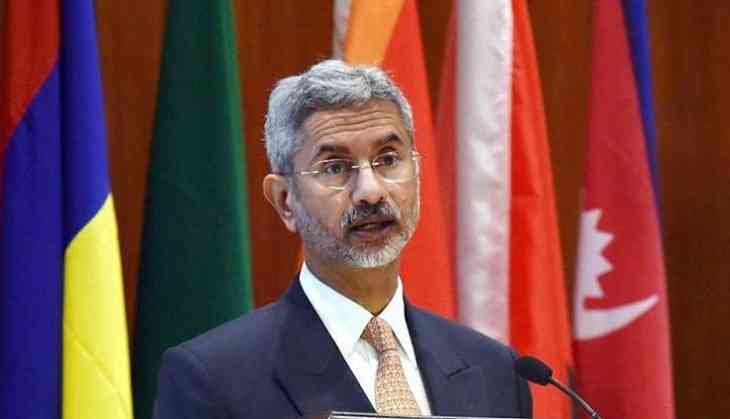
India's former foreign secretary S Jaishankar has said China has to think what signal it is sending to the world by putting a technical hold in the UN on a proposal to list Pakistan-based terror group JeM's chief Masood Azhar as a global terrorist.
China last week blocked for the fourth consecutive time a resolution at the UN Security Council Committee on designating Azhar as a global terrorist. The proposal under the 1267 Al Qaeda Sanctions Committee of the UN Security Council was moved by France, the UK and the US on February 27, days after a suicide bomber of the JeM killed 44 CRPF soldiers in Jammu and Kashmir's Pulwama, leading to a flare-up in tensions between India and Pakistan.
Jaishankar, president of Global Corporate Affairs at Tata Group and India's former ambassador to China and the US, said: "this is an issue that the Chinese have to think through for themselves, you know, what is the signal they are sending". The statement of Jaishankar, also India's former foreign secretary, came during a session at Asia Society here this week while responding to a question on China again blocking the proposal to ban Azhar.
Jaishankar was participating in a discussion 'New Roadmaps for Asia' focusing on the Free and Open Indo-Pacific and the Quadrilateral Security Dialogue at the city-based cultural organisation along with Japan's former Vice Minister for Foreign Affairs and member of the board at Mitsubishi Corporation Akitaka Saiki.
Asked how India views China's ambitious Belt and Road Initiative, Jaishankar said India's position on the project has been made very clear. "We have an overall position on connectivity, which is autonomous of the Belt and Road. It would apply to a Japanese initiative or an American initiative," he said. India has some specific concerns about the Chinese initiative, he said.
"The first issue for us is that any connectivity initiative should be respectful of sovereignty. The reason I stress is that one of the corridors, the so-called China-Pakistan Economic Corridor, passes through the state of Jammu and Kashmir. And that is the land which is illegally held by Pakistan and part of it has been illegally ceded to China," he said.
Jaishankar said that it has to be borne in mind "that you are talking of a certain amount of real estate for which actually Pakistan is not legally claiming ownership nor is China legally claiming ownership but India is the only sovereign legal claimant of that land. The fact that the Indian sovereignty was disregarded is obviously something which is difficult for India to overlook, he said. Jaishankar noted that there is also a larger issue on connectivity, including whether it is consultative.
"Are we better served by a consultative process or by a unilateral process where one player is driving connectivity for their particular interest," he asked.
He said that the other issue is whether the initiative is commercially viable. "That is important because if it's not commercially viable and yet you are going through with the connectivity initiatives, then the natural question it would evoke is are there hidden agendas," Jaishankar said, adding that there is also the issue of what is the local ownership and local involvement in that connectivity project.
He noted that there is no question that Asia today needs more connectivity and because there is demand for this, it is important that the supply is done in a right way. "What you don't want is that the cure is worse than the disease in a way. It is important today to have honest conversations on connectivity and try and move the connectivity conversations towards a more consultative mode. That would be part of a free and open Indo-Pacific," the former envoy added.
The BRI includes USD 60-billion China-Pakistan Economic Corridor which India opposes as it traverses through the Pakistan-occupied Kashmir. The US, India and several other countries have raised concerns over the BRI as China doled out huge loans to smaller countries for infrastructure projects without taking into consideration their ability to pay back the money.
-PTI


